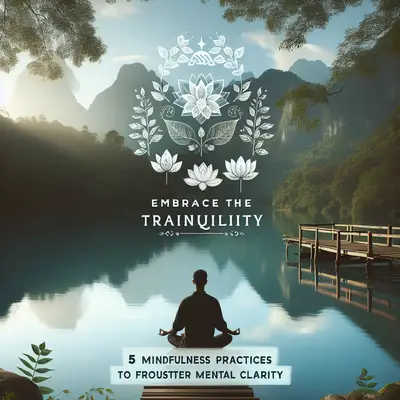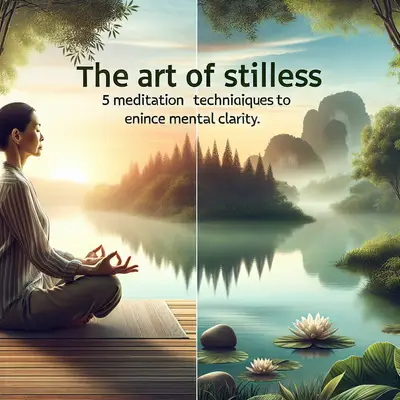Life can get pretty chaotic, and amidst this chaos, it's often challenging to maintain mental clarity. However, by incorporating mindfulness practices into your daily routine, you can significantly enhance your ability to stay calm, focused, and clear-headed. Let's explore five such practices that can help you cultivate mental clarity.
Mindful Breathing
Mindful breathing is a simple yet powerful practice that can help you anchor your mind in the present moment. By focusing on your breath, you become aware of the subtle sensations in your body, thereby training your mind to stay focused. It's a practice that can be done anywhere and at any time, and it's a great starting point for those new to mindfulness.
Body Scan
A body scan is a mindfulness practice that involves paying attention to different parts of your body, from your toes to your head, and noticing any sensations, tensions, or discomfort. This practice helps you connect with your physical presence, guiding your mind away from distracting thoughts and toward a state of relaxation and mental clarity.
Mindful Eating
Mindful eating is a practice where you focus on the experience of eating, savoring each bite, and acknowledging the flavors, textures, and smells. This practice encourages you to be fully present during your meals, which can improve your relationship with food and enhance your sense of satisfaction and enjoyment.
Walking Meditation
Walking meditation is a practice that combines physical activity with mindfulness. As you walk, focus on the feeling of your feet touching the ground, the rhythm of your steps, and the sensation of the air against your skin. This practice not only helps clear your mind but also connects you with the world around you.
Loving-Kindness Meditation
Loving-Kindness Meditation (also known as Metta Meditation) is a practice that involves directing positive thoughts and wishes towards yourself and others. This practice can help you cultivate feelings of compassion and empathy, reducing negative emotions that cloud your mental clarity.
Conclusion
Mindfulness is a powerful tool that can help you navigate through life's ups and downs with a clear and focused mind. By incorporating these five practices into your routine, you will likely experience a sense of calm and clarity that will make it easier to manage stress and maintain your mental well-being. Remember, mindfulness is not about achieving a particular state; rather, it's about being present and accepting of whatever arises in the moment.



